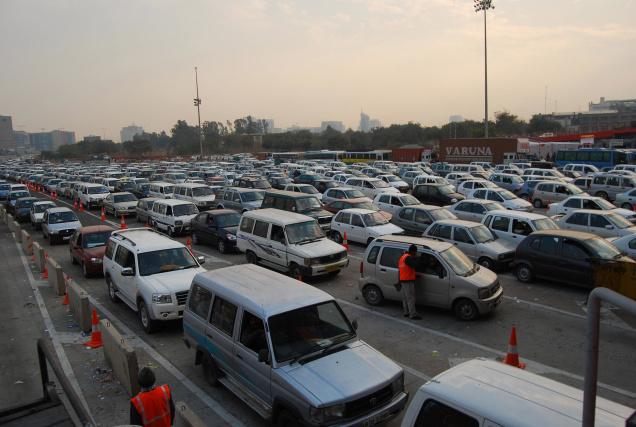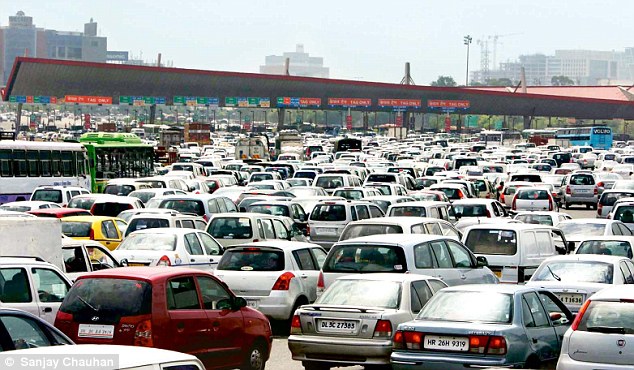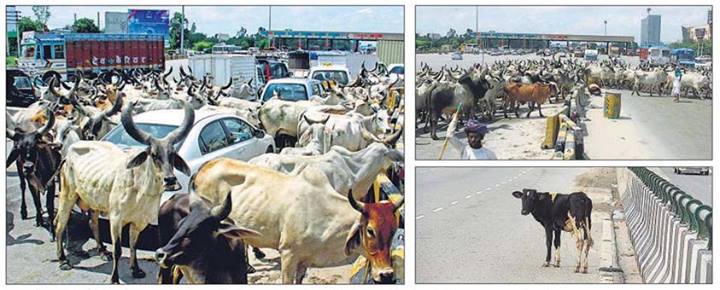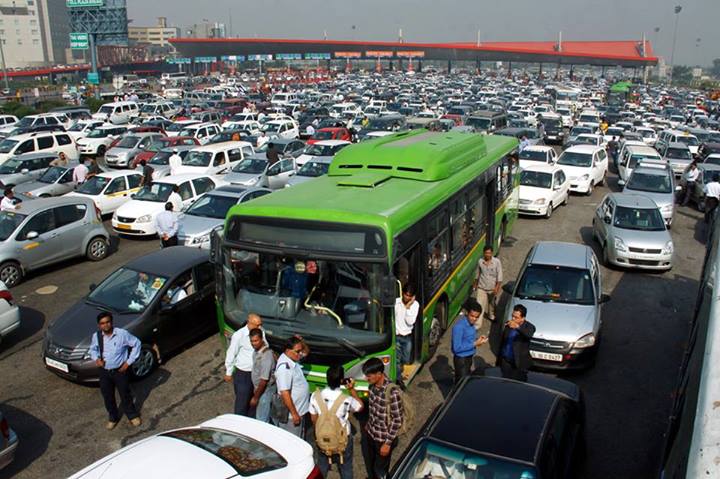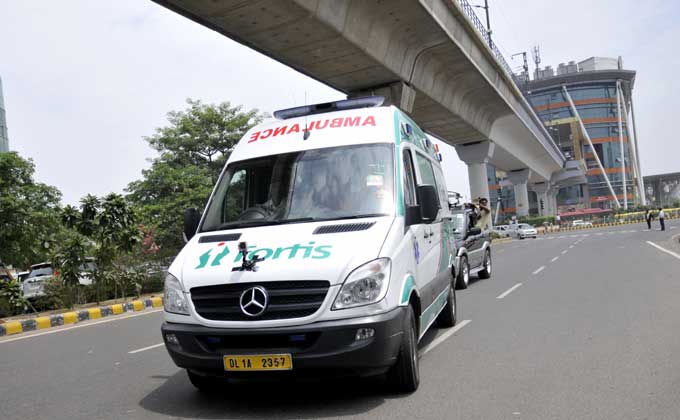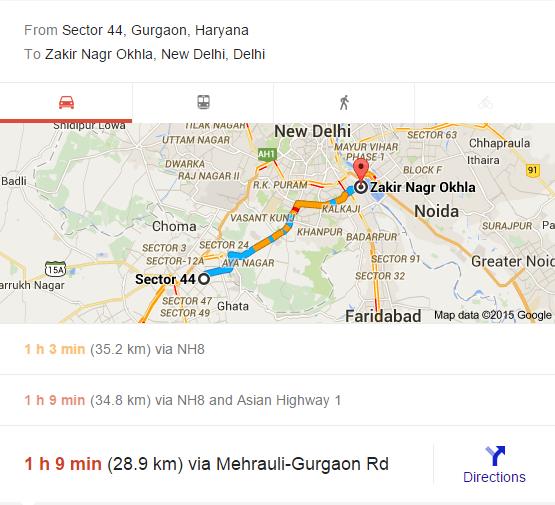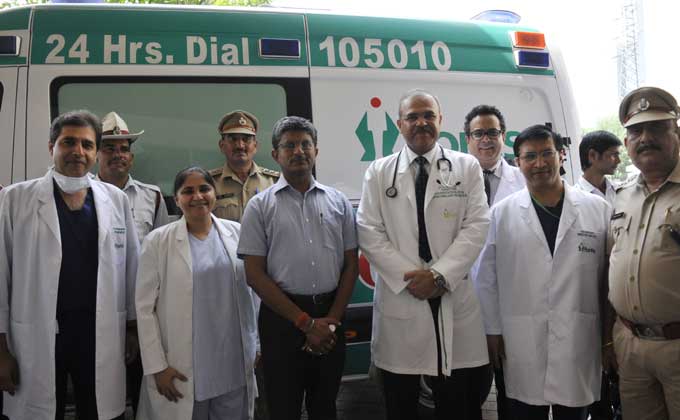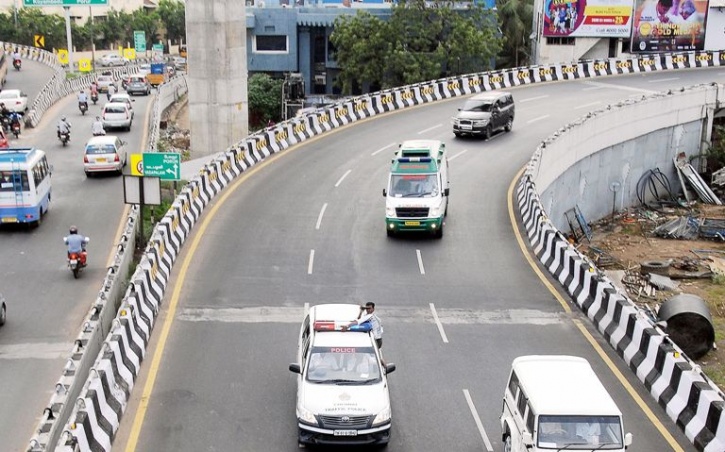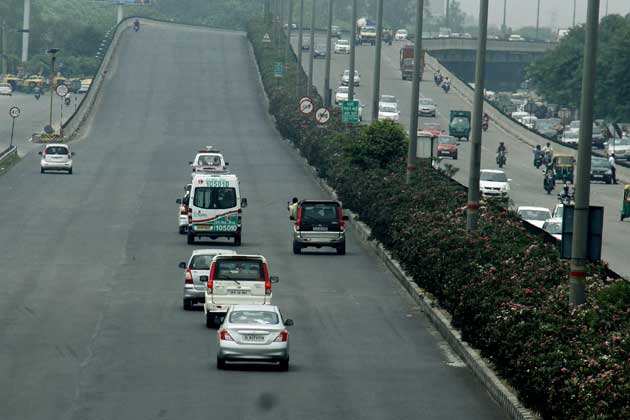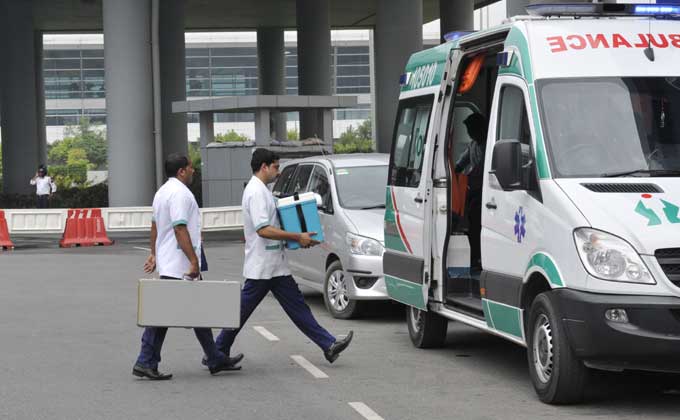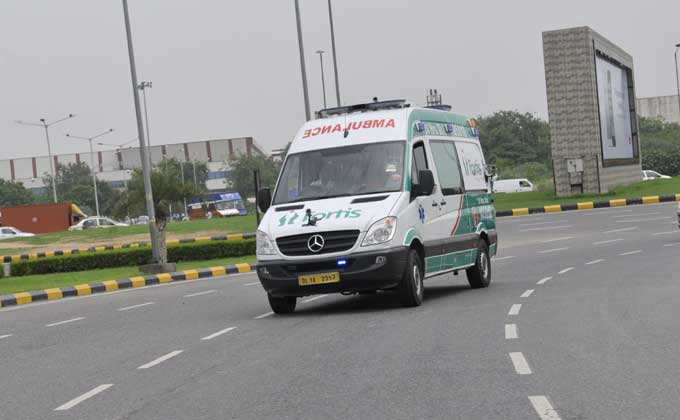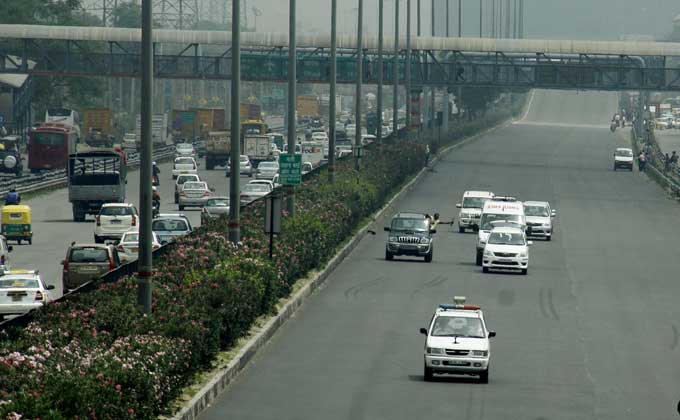How Cops Cleared 32KM Of Congestion To Get A Beating Heart To Its New Owner
In our this week's Feel Good Friday column, we bring to you a story of how a 16-year-old boy got a new life when police from the Indian cities of Delhi and Gurgaon came together to create a Green Corridor to help transfer a heart swiftly and safely.
The Delhi-Gurgaon Expressway is a 28 km long access-controlled toll expressway connecting Delhi, the capital of India and Gurgaon, a city in Haryana. The traffic on the expressway sometimes run up to a Kilometer resulting in stoppage time of over an hour.
File picture of a traffic jam at the Toll plaza on Delhi -Gurgaon expressway in New Delhi
Image via thehindu.comBut on 4 January 2015, a convoy of ambulances covered the distance of 32km, starting from Sector 44 in Gurgaon to Okhla in South Delhi, in just 29 minutes flat. Their cargo: a live, beating heart waiting to be transplanted into a 16-year-old boy.
Because of the joined efforts of Delhi and Gurgaon police to create a 32 km long Green Corridor, which helped the special convoy of traffic police and ambulance crisscross through the congested road at over 100 km per hour to save the life of the teenager suffering from a failing heart at Fortis Escorts Heart Institute
A green corridor from Sector 44 in Gurgaon to Okhla in south Delhi was created with the help of the traffic police to transfer the live heart from Gurgaon's Fortis hospital to Fortis Escorts Heart Institute in Delhi.
The ambulance, escorted by police vehicles covered the distance at a speed of 100 km per hour, according to The Times of India report.
"The recipient was waiting in the operation theatre. As soon as the heart arrived, the transplant began. It has been successfully transplanted into the 16-year-old and the patient is recuperating," a doctor said.
The donor was a 30-year-old IT professional who was declared brain dead. But the challenge lay in transporting the organ at the earliest so that the life-saving transplant could be carried.
The donor was a 30-year-old IT professional who was declared brain dead around 8.48am on Saturday by doctors at Fortis Memorial Research Institute in Gurgaon. After receiving consent from the deceased's family, the doctors quickly identified the recipient.
The challenge lay in transporting the organ at the earliest so that the life-saving transplant could be carried. A human heart can be preserved for only up to four hours, but experts say the earlier the transplant is completed, the higher the success rate.
Doctors harvested the heart, as well as other organs for donation, at 3.30pm. Within minutes, the vital organ was safely loaded into a waiting ambulance. The road leading to the Delhi-Gurgaon border and ahead had already been cleared by traffic personnel. The ambulance drove at lightening speed from the Delhi-Gurgaon border, sometimes touching 120kmph. Regular traffic was stopped at several other intersections to give it uninterrupted passage.
As per Navdeep Singh Virk, the Gurgaon police commissioner, a pilot gypsy and bike-borne personnel were deployed to clear the route for the ambulance and traffic signals were put on manual mode
"We had conducted a dry run with FMRI last August. As soon as the request for transportation of the organ was received, we contacted our counterparts in Delhi and first decided on the shortest possible route. A pilot gypsy and bike-borne personnel were deployed to clear the route for the ambulance," said Navdeep Singh Virk, the Gurgaon police commissioner. The ambulance entered Delhi from the Aya Nagar border and travelled through Mehrauli-Gurgaon and Mehrauli-Badarpur roads.
"All traffic signals were put on manual mode and the ambulance was allowed to run signal-free," said Muktesh Chander, special commissioner of police (traffic), Delhi.
"The recipient was waiting in the operation theatre. As soon as the heart arrived, the transplant began. It has been successfully transplanted into the 16-year-old and the patient is recuperating," said a doctor.
Elated over the achievement, Delhi Police official Muktesh Chander said:
“It was a good coordinated effort by the Delhi and Gurgaon Police. We were informed before hand so we gave green signals to the ambulance throughout the route and covered over 32 kilometres within 30 minutes.”
Apollo hospital’s Dr Pradeep Jain also agreed what the Delhi Traffic Police and the Gurgaon Police achieved was “no mean feat”.
